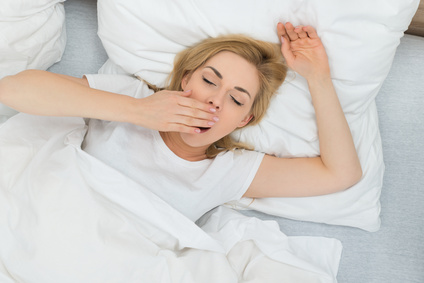📚Why Do You Yawn When You’re Tired?
 The significance of our sleep cycles cannot be underestimated in both our physical and mental well-being, emphasizing the need to secure ample rest each night for full recovery. But what triggers yawning when feeling fatigued? Is it merely an indication that your daily routine lacks sufficient rest, or is there more to the story? This article aims to explore the connection between yawning and sleep, shedding light on the known and the mysteries that remain.
The significance of our sleep cycles cannot be underestimated in both our physical and mental well-being, emphasizing the need to secure ample rest each night for full recovery. But what triggers yawning when feeling fatigued? Is it merely an indication that your daily routine lacks sufficient rest, or is there more to the story? This article aims to explore the connection between yawning and sleep, shedding light on the known and the mysteries that remain.
Why Do We Sleep?
While, from our perspective, the time spent asleep is calm and with little activity, the story couldn’t be more different for what’s actually going on in the body. It’s a crucial part of the day when your cells are able to recover from activity, for muscles to grow, and for hormones to be produced.
It’s not all physical either. It’s also the time when the brain is able to process all of the information it has collected since the last time you slept. This is seen across the various sleep stages we pass through, and the way we dream as a method of interpreting this information.
What is Yawning?
Yawning can happen for a number of reasons, but involves a deep breath with an open mouth, and the stretching of the muscles down through the jaw and chest. It isn’t just humans who yawn, with the behavior seen in most animals, and even a fetus can be seen yawning in ultrasounds. There’s nothing conscious about this process and, though the full mechanism is not understood, it is triggered from somewhere within the unconscious mind.
A yawn is thought to originate in a region of the brain called the hypothalamus, which is responsible for producing a number of neurotransmitters that are responsible for the way you think and feel. The precise triggers for what makes you yawn are unknown though, as it happens in various situations.
What Does Yawning Do?
On a physical level, yawning is thought to have a beneficial effect on how we feel and function. It often happens when we are tired or bored when our efficiency of breathing is reduced, and acts as an instant boost of oxygen to the body as well as removing more waste products like carbon dioxide.
This helps us to wake up a little and function better until we have a chance to sleep. There’s also a temperature regulation effect that helps to cool your brain down with the inhalation of air.
It is also thought that the act of stretching the body during a yawn, particularly the lungs, increases the heart rate so you feel more alert. It’s not much different to taking a prolonged, deep breath to rejuvenate yourself, and the noise that many people make when breathing out after a yawn furthers the effects of this.
The act of yawning, on average, last for around six seconds; during which the heart rate noticeably increases, with a number of physiological changes also happening that don’t occur when simply taking a deep breath. The action also helps to spread an oily liquid called surfactant that lubricates the lungs to make breathing easier, and so may indicate a restorative process in action as well.
Does Yawning Mean You’re Tired?
Yawning is often linked to tiredness, but this is not the only situation that can trigger it happening. It is thought to be linked with varying conditions within the body, and an automatic process that attempts to balance these conditions. A lack of oxygen is one thing yawning helps to alleviate, but you will find yourself yawning more when you are bored, when you are sleepy, when you are waking up, and when you are falling ill.
Yawning also seems to serve a social function. You’ll surely be aware how contagious they can be, and it’s quite common to start yawning more when people around you are doing so, but experiments have proven you are more likely to catch a yawn from someone who is more important to you than others.
In the main, though, yawning typically occurs in relation to sleep. If you haven’t had much rest recently you will start yawning much more frequently. This is a good indication that your body is struggling to function and needs to increase its oxygen intake and try to quickly refresh itself. Similarly, waking up after a good night’s sleep will often trigger some yawning in an attempt to help you wake up quicker.
The Final Word
Why do you yawn when you’re tired? There’s a lot that still isn’t understood about sleep in general, and yawning is no different. There are definite physiological benefits you get from yawning that can explain why you yawn, but it’s not limited to a lack of sleep.





